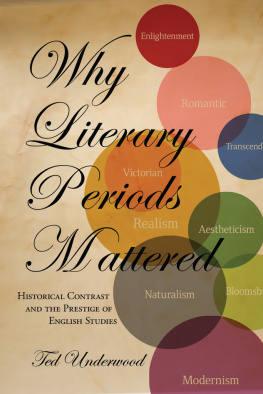THE
CHIEF PERIODS OF EUROPEAN HISTORY
SIX LECTURES
READ IN THE UNIVERSITY OF OXFORD
IN TRINITY TERM, 1885
WITH AN ESSAY
ON
GREEK CITIES UNDER ROMAN RULE
BY
EDWARD A. FREEMAN, M.A., Hon. D.C.L. & LL.D.
REGIUS PROFESSOR OF MODERN HISTORY
FELLOW OF ORIEL COLLEGE
HONORARY FELLOW OF TRINITY COLLEGE
London
MACMILLAN AND CO.
AND NEW YORK
1886
[All rights reserved]
PREFACE.
These are the Lectures referred to in the last paragraph of the Preface to the course on the Methods of Historical Study, lately published. I have added to them the second of two articles which appeared in the Contemporary Review for 1884. The former of them, Some Neglected Periods of European History, I have not reprinted, as its substance will be found in the present course. The second, Greek Cities under Roman Rule, as dealing somewhat more in detail with some points which are barely glanced at in the present course, seemed to make a fitting to it.
I find that the same thought as to the political result of modern scientific inventions which is brought out at pp. of these Lectures is also brought out in the Lecture at Edinburgh, reprinted in my little book Greater Greece and Greater Britain, published last May. This kind of thing is always likely to happen in lectures given in different places. It seemed to me that the thought came naturally in both lectures, and that either would lose something by its being struck out. As for those who may be so unlucky as to read both, I can only say that a thought which is worth suggesting once is worth suggesting twice. At least I have often found it so in the writings of others, specially in those of Mr. Grote.
The two courses of Oxford lectures which have now been printed are both introductory. In this present course the division into periods which is attempted is, on the face of it, only one among many which might be made. Another man might divide on some principle altogether different; I might myself divide on some other principle in another course of lectures. My present object was to set forth as strongly as possible, at the beginning of my teaching here, the main outlines of European history, as grouped round its central point, the Roman power. The main periods suggested by such a view of things are those which concern the growth and the dying-out of that powerEurope before the growth of RomeEurope with Rome, in one shape or another, as her centreEurope since Rome has practically ceased to be. When this main outline, a somewhat formal one, has once been established, it is easy at once to fill in and to subdivide in an endless number of ways and from an endless number of points of view. Thus I have at present little to do with the political developement of particular nations. Of some branches of that subject I have treated at some length in other shapes; I may, in the course of my work here, have to treat of others. But they are not my subject now. Nor have I now to deal with the great events and the great institutions of Europe, except so far as they helped to work out the one main outline which I have tried to draw. The power of the Popes may be looked at in a thousand ways; it concerns me now only in its strictly Roman aspect, as one, and the greatest, of the survivals of Roman power. The great French Revolution again may be looked on in a thousand ways. It concerns me now as having led to the sweeping away of the last relics of the old Roman tradition, and as having set up for a while the most memorable of conscious imitations of the Roman power. I say all this, that no one may be disappointed if he fails to find in this thin volume even a summary of all European history, much less a philosophical discussion of all European history. My business now is simply to draw an outline, ready either for myself or for others to fill up in various ways.
These two introductory courses make up the result of my public work as Professor during my first year of office, 1884-5. Besides these, there was the minute study of Gregory of Tours with a smaller class, followed by the like study of Paul the Deacon. In my second year, 1885-6, I have, besides this study of texts, been engaged, as I said in my former Preface, with public lectures of a much more minute kind, on the history of the Teutonic nations in Gaul. These I do not design to publish as lectures. If I live long enough, I trust to make my way through them to an older subject of mine, the Teutonic settlements in Britain. Neither the history of Gaul nor the history of Britain in the fifth century A.D. can be fully understoodit follows that the whole later history of the two lands cannot be fully understoodwithout comparing it with the history of the other land. In dealing with Goths, Burgundians, and Franks, the comparison and contrast with Angles, Saxons, and Jutes, if it sometimes passes out of the immediate sight, must never be allowed to pass out of the minds eye. The broad light of the history of Gaul is the best comment on the yet more instructive darkness of the history of Britain.
This subject brings me at once within the range of controversy. I believe that the doctrine for which I have struggled so long, the doctrine, as I have somewhere put it epigramatically, that we, the English people, are ourselves and not somebody else, is now often held to be altogether set aside. Only a few old-fashioned people like myself are thought likely to maintain it. Yet, whenever I come across these new lights, I always begin to doubt whether those who kindle them have ever minutely contrasted the circumstances or the results of the Teutonic settlements in Britain with those of the better known Teutonic settlements in Gaul. Now this is the very root of the matter; in discoursing of the phnomena of Gaul, I have always had an eye to the phnomena of Britain, and I trust some day, if I am ever able to work through my materials, to set forth the contrast in full. To this object the lectures which I am now gradually giving will, I hope, serve; but it will be best to put no essential part of them forth to the world till I can deal with the subject as a whole. Till then I will simply put on record, for the benefit of those who may have heard statements attributed to me which they have certainly not read in my writings, that I have nowhere said, because I never thought, that every one Briton was necessarily killed, even in those parts of Britain which became most thoroughly Teutonic. At the same time, I think that every one who really reads his Gregory and his Bda, every one who carefully compares the map of Gaul with the map of Britain, every one who stops to think over the history of the French and the English tonguesand the history of the Welsh tongue too will not do him any harmmay possibly come to the conclusion that the doctrine that Englishmen after all are Englishmen has really some little to be said for it.
16, St. Giles, Oxford ,
October 18, 1886.
LECTURE I.
EUROPE BEFORE THE ROMAN POWER.
In my first course of public lectures I did my best to speak in a general way of the nature of historical study, of its kindred pursuits, of the difficulties by which it is beset and of the most hopeful means of overcoming them. I spoke of the nature of the evidence with which we have to deal in the search after historic truth, and of the nature of the witnesses by whom that evidence is handed down to us. In future courses I trust to apply the principles which I then strove to lay down to the study of some of the most memorable periods since the point at which, if at any point, the special business of this chair begins. That we have ruled to be the point at which the Teutonic and Slavonic nations first began to play a chief part in the great drama of the history of Western man. In the present term I ask your attention to a course which will attempt to fill a place intermediate between these two, and which may naturally serve as a link between them. Now that we have laid down rules for the general guidance of our studies, while we are looking forward to a more minute dealing with the history of some specially memorable lands and times, we may, as the intermediate stage, do our best to part off the history of man, such parts of it at least as concern us, into a few great and strongly-marked periods. In my former course, while taking a very general view of my whole subject, I did not feel myself bound to keep within any artificial limits, whether of my own fixing or of any other mans. When speaking of evidence and of authorities, I drew my illustrations as freely from centuries before our ra as from centuries after it. In my present course I must make a yet more direct and open raid into the territories of my ancient brother. The history of the Teuton and the Slave, since the days when those races came to the forefront of the nations in the fourth, fifth, sixth, and seventh centuries of our ra, will be simply unintelligible if we do not attempt at least a general picture of that elder world into which they made their way, and of the course of events which gave that world the shape in which they found it. But my sojourn in the lands which are ruled to belong to another will not be a long one; before a or an Alien Act can be hurled at me, I shall be gone. It will be only for the space of about a thousand years that I need tarry beyond the frontier which after all is a frontier of my own choosing. And I shall always welcome my ancient brother on a return visit of at least the same length. If I claim to walk lightly at his side through the ages between the first Olympiad and the great Teutonic invasion of Gaul, I bid him walk more steadily, more abidingly, at my side through the ages between the Teutonic invasion of Gaul and the Ottoman conquest of Trebizond. In my next academic year I shall not need to ask leave to play truant even for so short a space as I have spoken of. My main subject will then lie fully within the barrier. We shall cross the Rhine and the Channel with the Vandal and the Saxon of the fifth century. And if it may still be sometimes needful to look back to Arminius and Ariovistus, to remember that men of our own stock fought against Gaius Julius and Gaius Marius, we can in return again call on our elder brethren to look forward for a far longer space, to assure them that we hold them thoroughly at home, not only in the Rome, Western or Eastern, of any age, but in the Aqu Grani of Frankish Csars and in the Jerusalem of Lotharingian Kings.



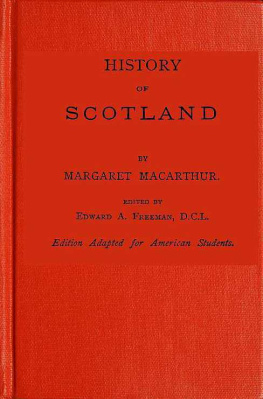
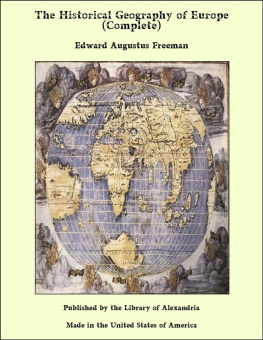
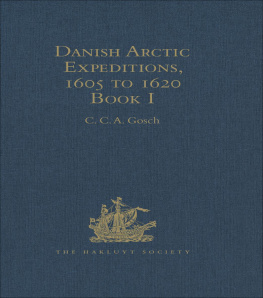
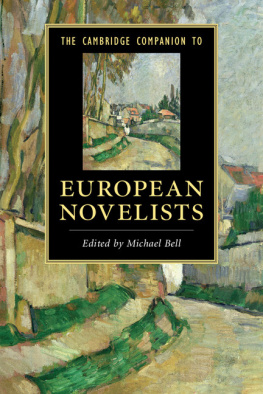
![Matt Cardin - Horror Literature Through History [2 Volumes]: An Encyclopedia of the Stories That Speak to Our Deepest Fears](/uploads/posts/book/119545/thumbs/matt-cardin-horror-literature-through-history-2.jpg)
